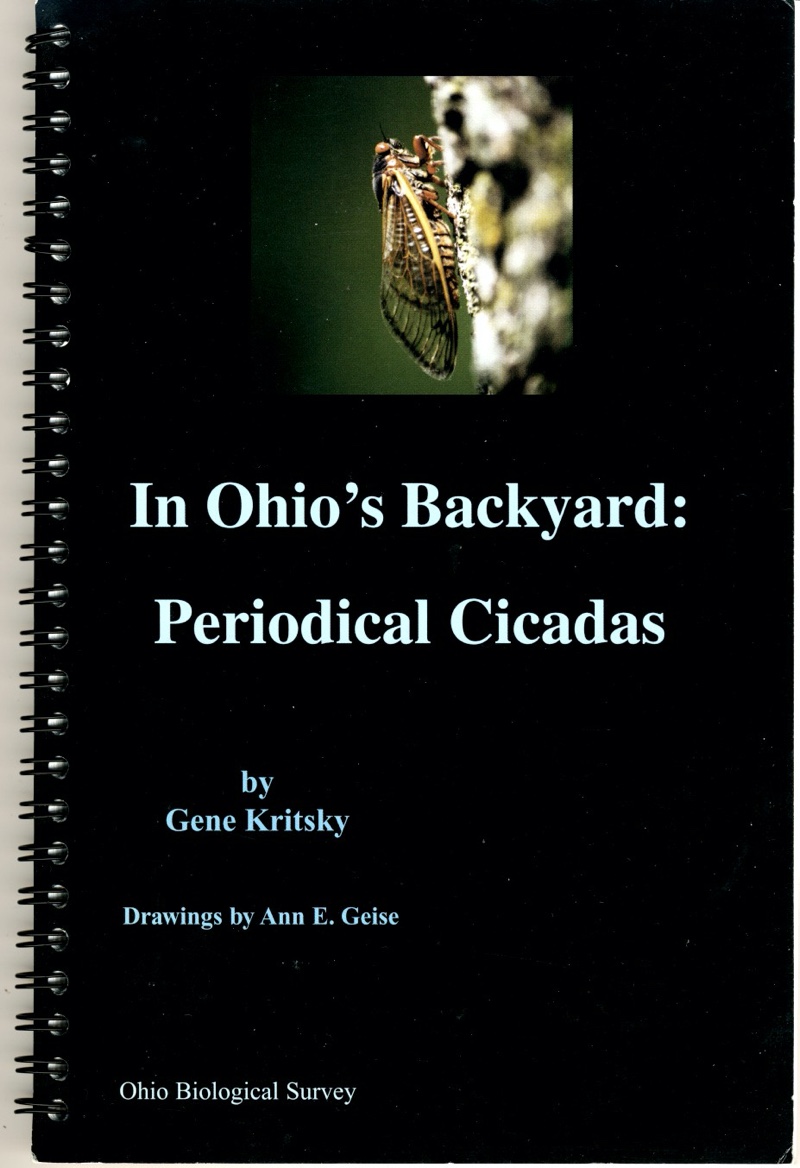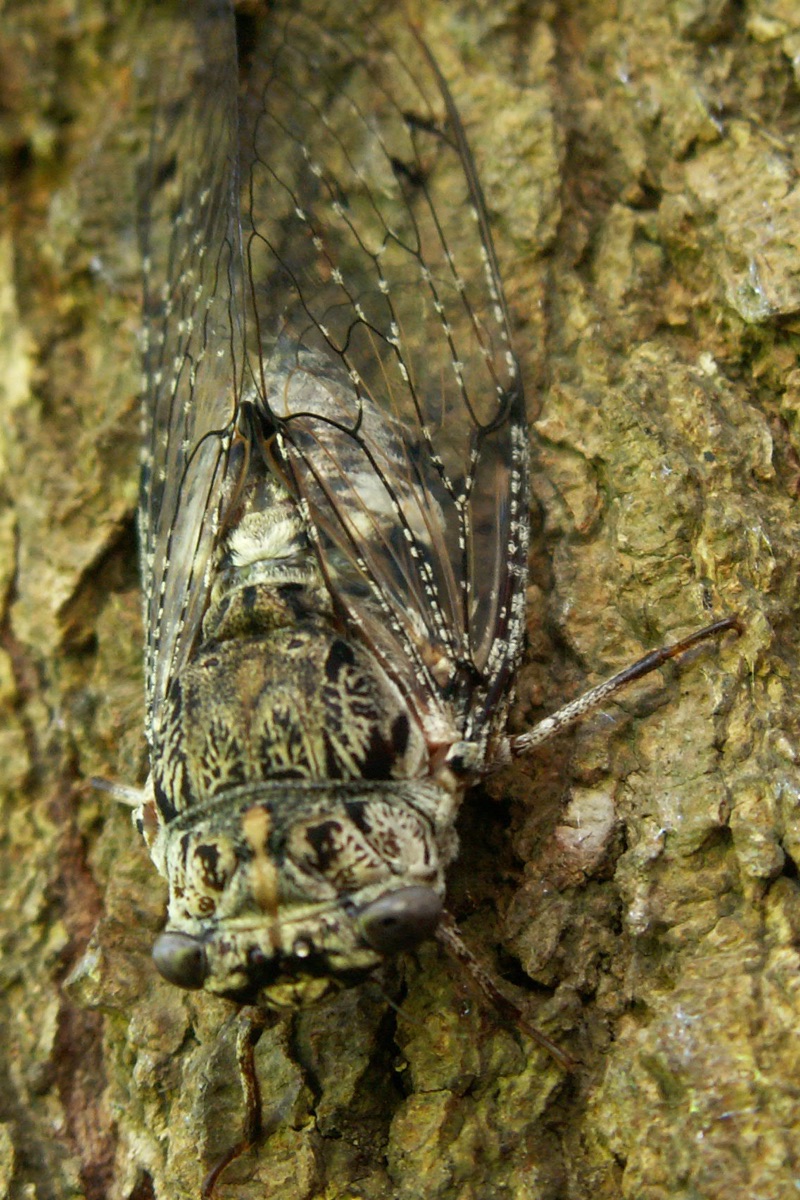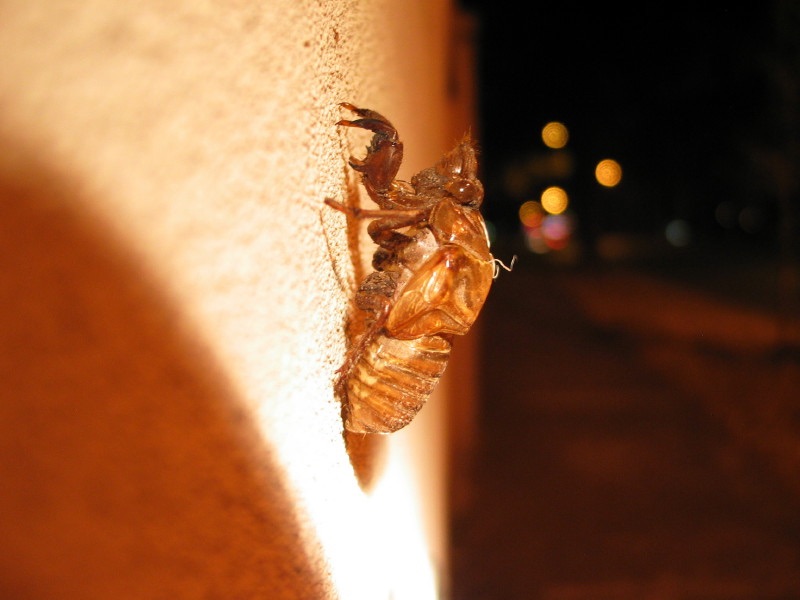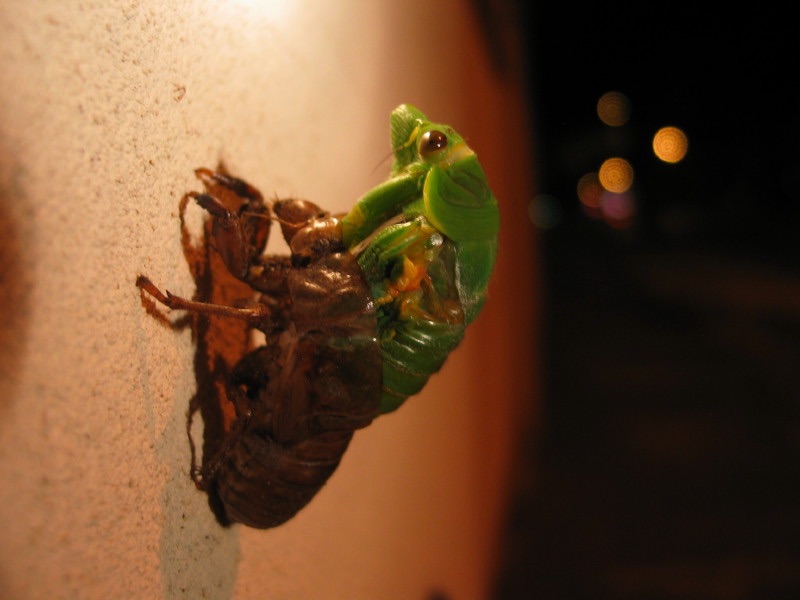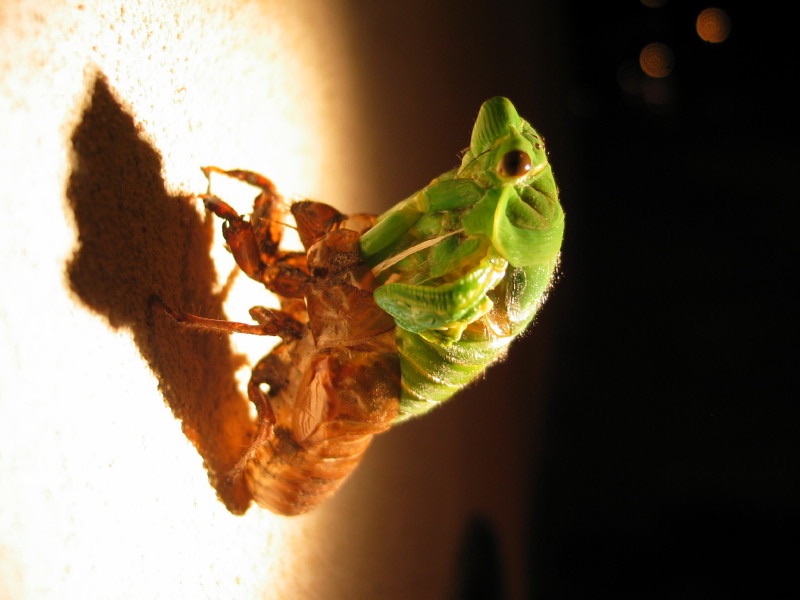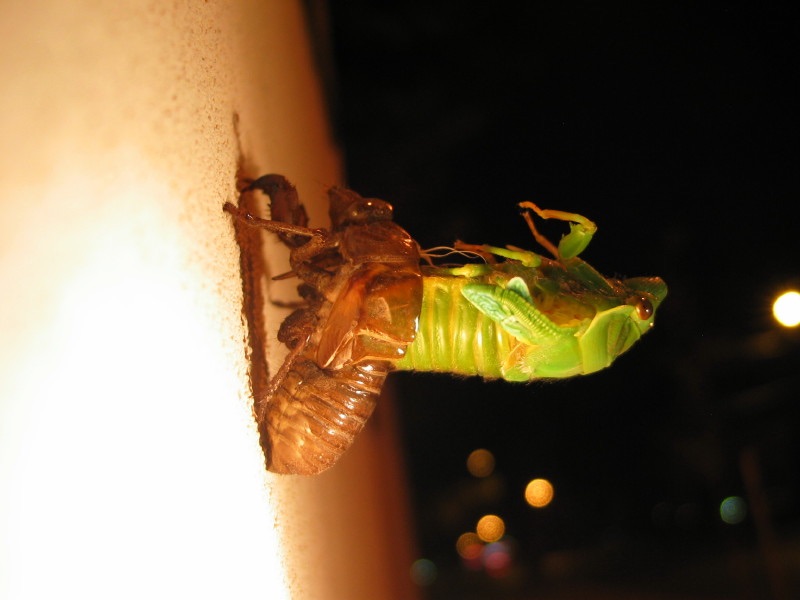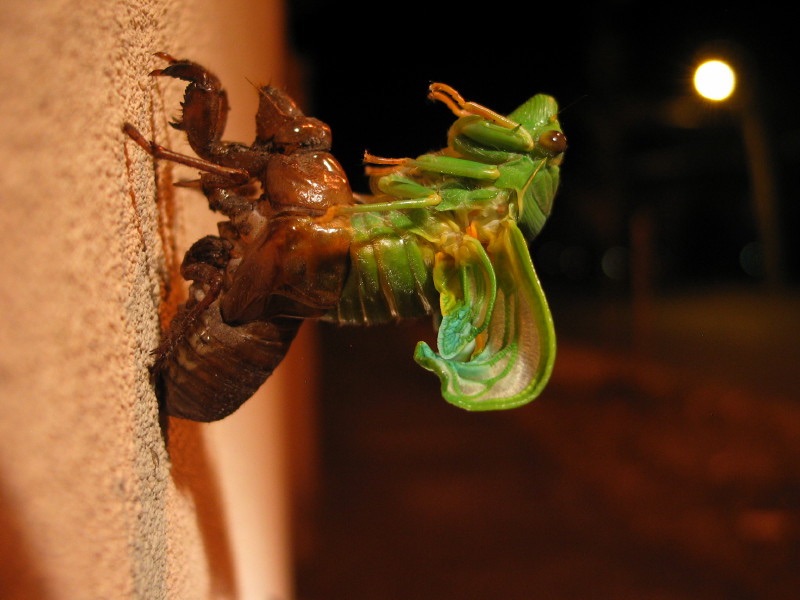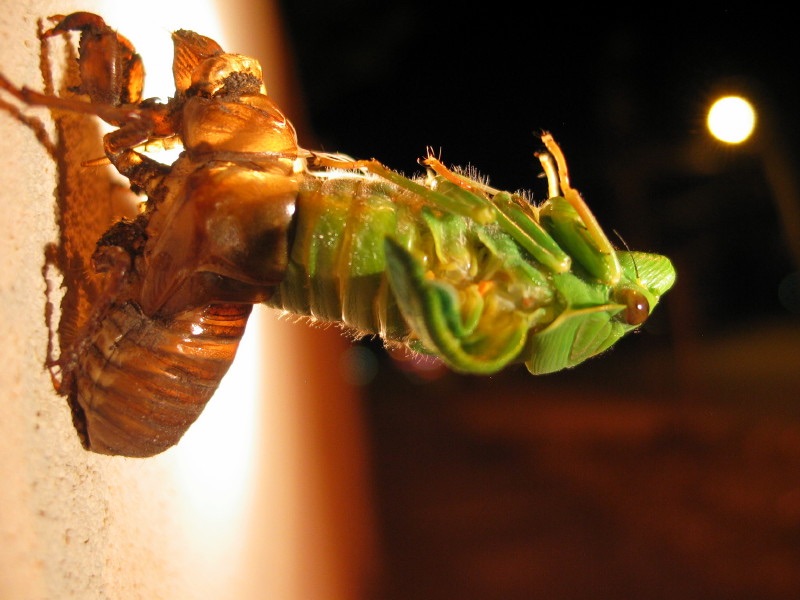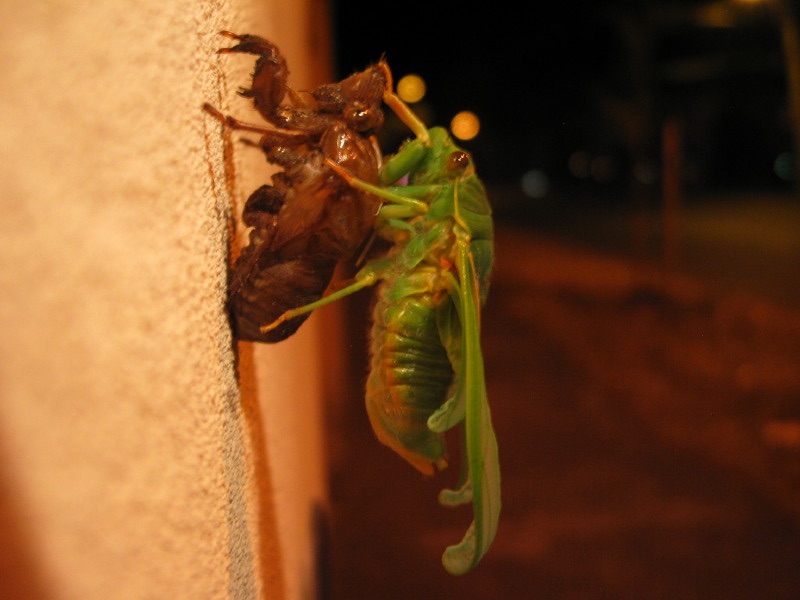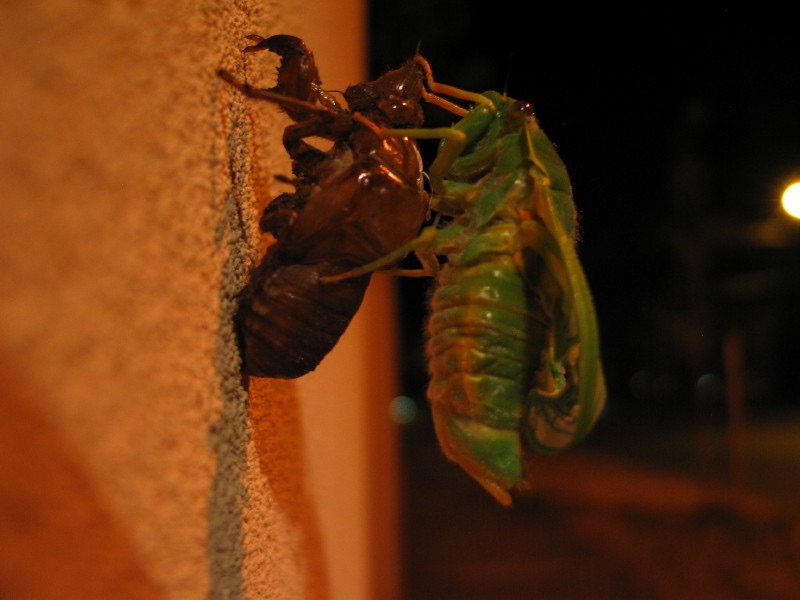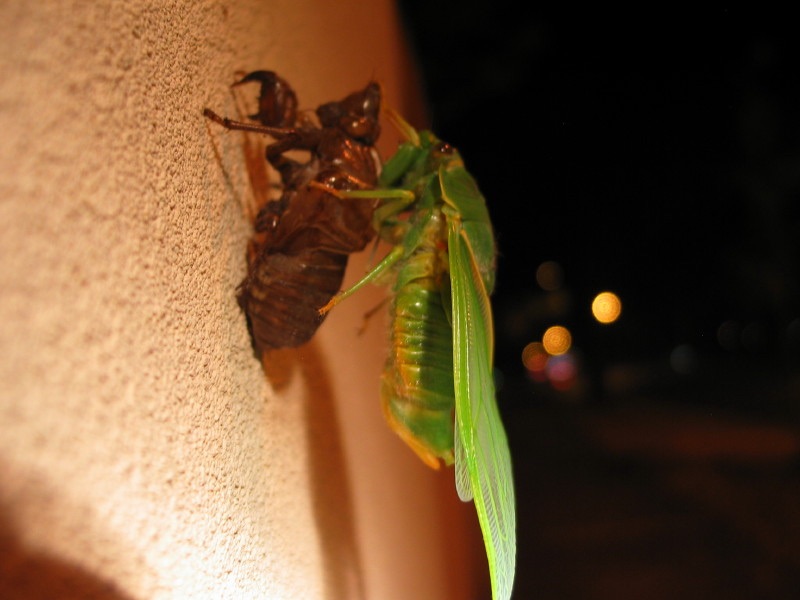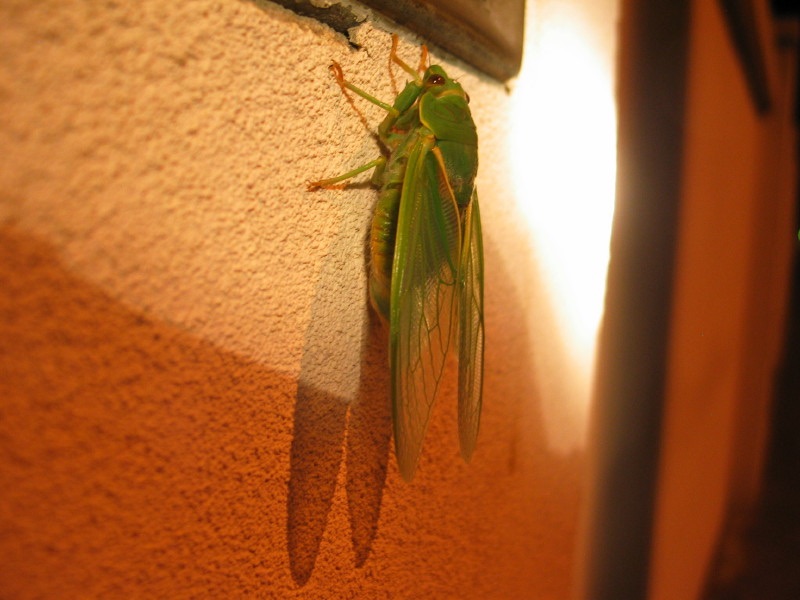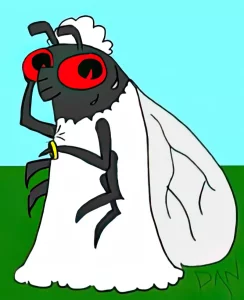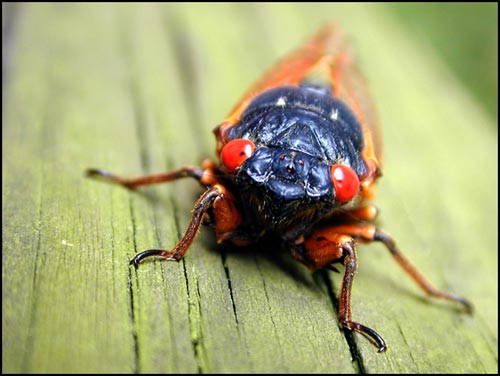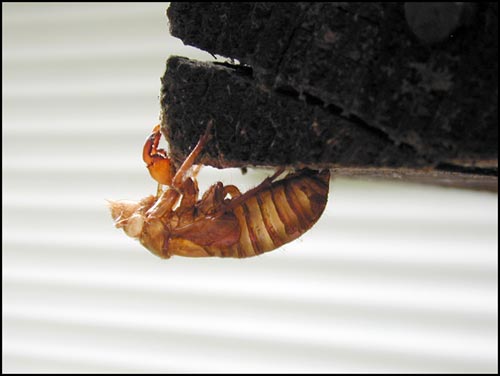Gene’s new book for 2024: A Tale of Two Broods: The 2024 Emergence of Periodical Cicada Broods XIII and XIX book by Dr. Gene Kritsky.
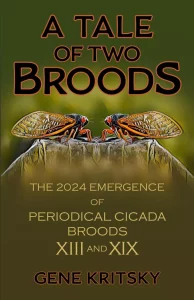
The 2006 Interview:
Gene Kritsky is one of the foremost and most accessible cicada researchers in North America. His excellent book In Ohio’s Backyard–Periodical Cicadas is a Cicada Mania favorite. Gene’s new book Periodical Cicadas: The Plague and the Puzzle is due out any day now. You should also visit Gene’s web site. Gene was kind enough to answer some of our questions — we hope you enjoy them:
Cicada Mania: There are a mind-boggling variety of insects in the world — why did you choose to focus your studies on cicadas?
Gene Kritsky: I am a student of history. I was first introduced to periodical cicadas by Frank N. Young at Indiana University. I immediately felt that there must be a wealth of information about periodical cicadas that had been overlooked through the years. It was mining that information, coupled with studying their biology that started it all for me.
CM: You have a new book titled Periodical Cicadas: The Plague and the Puzzle "emerging" in books stores soon. How does it differ from your previous cicada book In Ohio’s Backyard–Periodical Cicadas?
GK: The Plague and the Puzzle has a greater focus on history. It includes a long-lost manuscript written in 1716, the first stand-alone published work on periodical cicadas, a terminology timeline, and a review of what has happened in the past 104 years including, including new findings from my lab. In Ohio’s Backyard is a field guide for people wanting to experience the periodical cicadas. It contains activities for teachers and parents to help kids to better appreciate these insects.
CM: What makes Magicicada Brood X different from other emergences?
GK: Brood X is the largest of the 17-year broods. It has a long history going back to 1715. For me personally, I first studied Brood X in 1987 when it emerged in Cincinnati. It gave me the opportunity to set up some experiments that will finally come to completion. It is, therefore, like an old friend coming back to visit.
CM: Will all three 17-year Magicicada species (septendecim, cassini, &
septendecula) emerge this year?
GK: Yes, we are expecting all three species this year.
CM: Have you ever observed animosity between cicadas of different species? What cicada qualities make a male Magicicada more likely to find a mate? Does the guy with the loudest call, have the best chance of passing on his genes?
GK: I have not noticed animosity between the species, but have seen males of the same species compete for females by overlapping their calls. But we must be careful not to give the periodical cicadas human emotions. I think they are simply responding to a genetic cue, and doing what they do best. That being singing, matings, laying eggs, and dying.
CM: Do you think the mayor of Cincinnati should consider replacing the Flying Pig monuments with Cicada monuments?
GK: It is interesting that we have the same mayor this year as we did in 1987. This time, however, the city is getting into the emergence with a greater sense of fun. We are going to have a CD of cicada songs, cicada-free zones, cicada parties, cicada exhibits, t-shirts, jewelry, etc.
CM: Cincinnati is known for its chili restaurants. Know any good cicada chili recipes?
GK: I have not had them in chili, but they should be a nice addition. I personally like them battered and fried with a nice hot mustard sauce.
Periodical Cicadas: the Plague and the Puzzle:

There is usually a copy or two on Amazon.com.
In Ohio’s Backyard: Periodical Cicadas:
